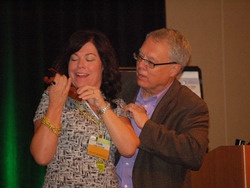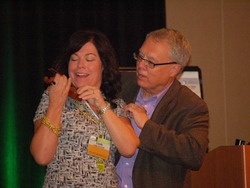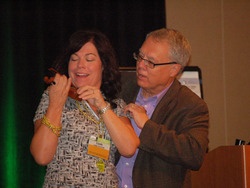


It’s hard to find a more uniquely skilled person than Dave Arch, a certified magician with 15 published books used within the training and coaching fields. Through the power of magic and metaphor, Dave reaches his audiences in unique ways, which challenges them to make new insights. Dave, owner of Dave Arch and Associates in Omaha, Neb., engages his clients in one-on-one executive and leadership coaching. He keynoted at The Bob Pike Group’s Creative Training Techniques Conference last month where he awed an audience with his coaching tricks and expertise.
According to Dave, the most important thing a manager or a coach can focus on is increasing the level of trust among coworkers of an organization. If a worker can’t trust another employee, the opportunity for collaboration and teamwork dwindles, but what qualities lead to greater trust? According to Dave, these four qualities do:
Trust is built at the beginning stages of employment by selecting the right people for the job. This means coaching should be present at each employee’s entrance into the company, including the hiring. Ultimately, a coach can only smooth out a fixed number of an employee’s rough edges. This is why it is important that an organization is thorough in creating a job profile. This will allow the new worker to gain the trust of peers faster, as they will likely possess a number of the desired qualities on day one. To create a thorough job profile, Dave suggests using a template he calls SEARCH.
Even if the right person is on the job, he or she will still require coaching to improve skills, and this will require some confrontation. For example, let’s say you need to coach somebody who has been referred to as being “aggressive” by coworkers. Telling "Bill" that he is too aggressive will most likely ensure Bill becomes offended and ignores his coach’s suggestions for improvement.
It's better to tell Bill that “you’re being perceived as being aggressive.” By using this phrase, instead of “you are aggressive,” the confrontation doesn’t come off as an accusation. You, the coach, want to help Bill come across as being less aggressive to his peers. In this way, the coach becomes the worker’s ally, opening the doorway to communication between coach and worker that will lead to improvement.
Dave is co-author of Dealing with Difficult Participants and author of several books on using magic tricks in training.
Don't miss out on updates and chances
to sharpen your skills with participant-centered learning.




3740 N Chestnut St #113 - Chaska, MN 55318-3053